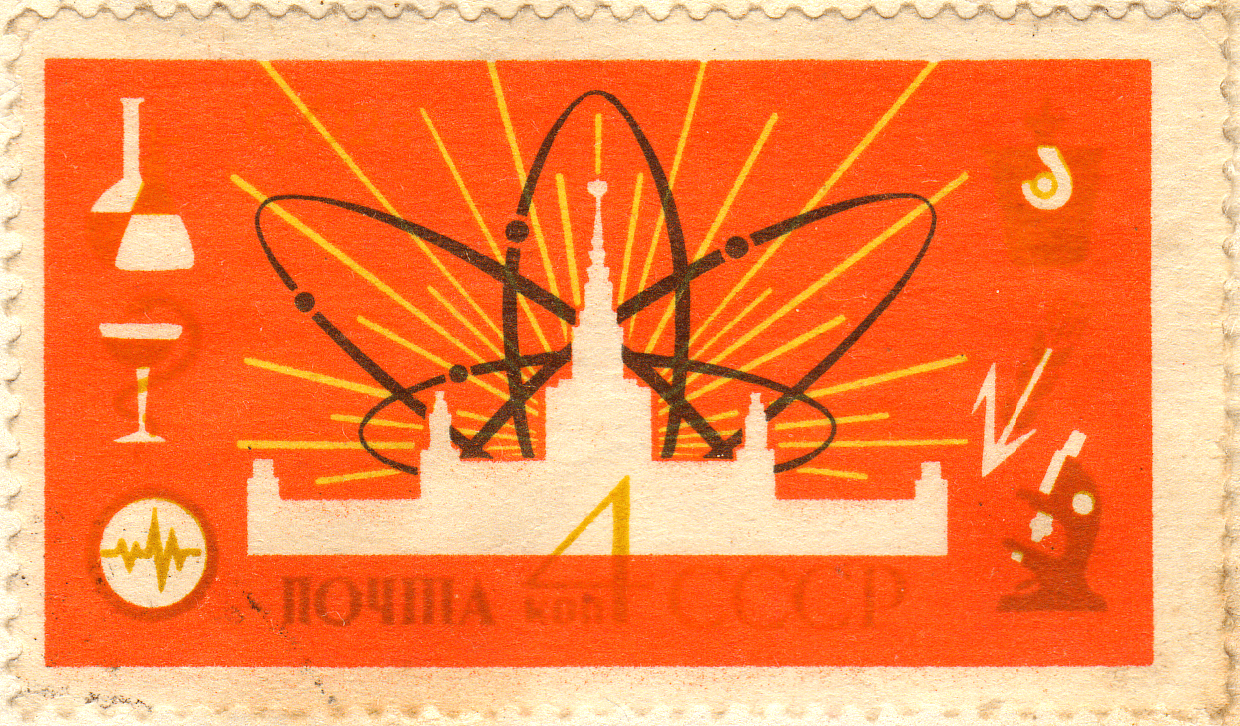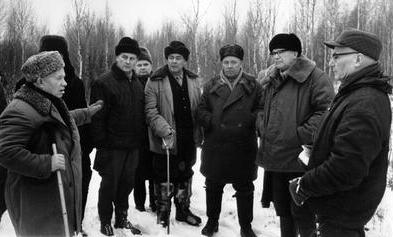|
Zdeněk Mlynář
Zdeněk Mlynář (born Zdeněk Müller; 22 June 1930 – 15 April 1997) was a Czech Communist politician and lawyer. He was the secretary of the Central Committee of the Communist Party of Czechoslovakia during the 1968 Prague Spring. Mlynář wrote the noteworthy political manifesto ''Towards a Democratic Political Organization of Society'' which was released on 5 May 1968, at the height of the Prague Spring. He was expelled from the party in 1969 and, having played a key role in establishing Charter 77, forced to emigrate in 1977. Life Mlynář was born on 22 June 1930 in Vysoké Mýto, Czechoslovakia. While in exile in Vienna, he wrote an autobiographical account of the Prague Spring and the Warsaw Pact invasion that put an end to it in August 1968. It was published in an English translation called ''Night Frost in Prague: The End of Humane Socialism.'' Mlynář's role in shaping the politics in Czechoslovakia Mlynář had been a law student in the Soviet Union during the ... [...More Info...] [...Related Items...] OR: [Wikipedia] [Google] [Baidu] |
Moscow State University
Moscow State University (MSU), officially M. V. Lomonosov Moscow State University,. is a public university, public research university in Moscow, Russia. The university includes 15 research institutes, 43 faculties, more than 300 departments, and six branches. Alumni of the university include past leaders of the Soviet Union and other governments. As of 2019, 13 List of Nobel laureates, Nobel laureates, six Fields Medal winners, and one Turing Award winner were affiliated with the university. History Imperial Moscow University Ivan Shuvalov and Mikhail Lomonosov promoted the idea of a university in Moscow, and Elizabeth of Russia, Russian Empress Elizabeth decreed its establishment on . The first lectures were given on . Saint Petersburg State University and MSU each claim to be Russia's oldest university. Though Moscow State University was founded in 1755, St. Petersburg which has had a continuous existence as a "university" since 1819 sees itself as the successor of an a ... [...More Info...] [...Related Items...] OR: [Wikipedia] [Google] [Baidu] |
Rita Klímová
Rita Klímová, née Rita Budínová (10 December 1931 – 30 December 1993) was a Czech economist and politician. She was Czechoslovakia's ambassador to the United States before that country's breakup in 1992. Early life Klímová was born in Romania. Her father was Stanislav Budín (née Bencion Bať), a prominent Communist writer who used the pen name Batya Bat.Davy, RichardObituary: Rita Klimova The Independent, 1994-01-07. Due to their Jewish ancestry, her family fled to the United States not long after Nazi Germany invaded Czechoslovakia in 1939. She settled in New York City in 1939, returning to Czechoslovakia in 1946 to finish her education. As a result, for the rest of her life she spoke American English with an "industrial-strength" New York accent.Lyons, Richard DRita Klimova, 62, Czech Dissident Who Became Ambassador to U.S.New York Times, 1993-12-30. Academic career Like many Central Europeans of her generation, Klímová was initially an ardent Communist. She j ... [...More Info...] [...Related Items...] OR: [Wikipedia] [Google] [Baidu] |
Pantheon Books
Pantheon Books is an American book publishing imprint. Founded in 1942 as an independent publishing house in New York City by Kurt and Helen Wolff, it specialized in introducing progressive European works to American readers. In 1961, it was acquired by Random House, and André Schiffrin was hired as executive editor, who continued to publish important works, by both European and American writers, until he was forced to resign in 1990 by Random House owner Samuel Irving Newhouse, Jr. and president Alberto Vitale. Several editors resigned in protest, and multiple Pantheon authors including Studs Terkel, Kurt Vonnegut, and Barbara Ehrenreich held a protest outside Random House. In 1998, Bertelsmann purchased Random House, and the imprint has undergone a number of corporate restructurings since then. It is now part of the Knopf Doubleday Publishing Group under Penguin Random House.Random House, Inc. Datamonitor Company Profiles Authority: Retrieved June 20, 2007, from EBSCO Hos ... [...More Info...] [...Related Items...] OR: [Wikipedia] [Google] [Baidu] |
Velvet Revolution
The Velvet Revolution () or Gentle Revolution () was a non-violent transition of power in what was then Czechoslovakia, occurring from 17 November to 28 November 1989. Popular demonstrations against the one-party government of the Communist Party of Czechoslovakia included students and older dissidents. The result was the end of Czechoslovak Socialist Republic, 41 years of one-party rule in Czechoslovakia, and the subsequent dismantling of the command economy and conversion to a parliamentary republic. On 17 November 1989 (International Students' Day), riot police suppressed a Student activism, student demonstration in Prague. The event marked the 50th anniversary of a violently suppressed demonstration against the Nazi storming of Prague University in 1939 where 1,200 students were arrested and 9 killed (see International Students' Day#Origin, Origin of International Students' Day). The 1989 event sparked a series of demonstrations from 17 November to late December and turned ... [...More Info...] [...Related Items...] OR: [Wikipedia] [Google] [Baidu] |
Gustáv Husák
Gustáv Husák ( , ; ; 10 January 1913 – 18 November 1991) was a Czechoslovak politician who served as the long-time First Secretary of the Communist Party of Czechoslovakia from 1969 to 1987 and the President of Czechoslovakia from 1975 to 1989. His rule is known for the period of normalization after the 1968 Prague Spring. Early life Gustáv Husák was born to an unemployed worker in Pozsonyhidegkút, Kingdom of Hungary, Austria-Hungary (now Bratislava- Dúbravka, Slovakia). He joined the Communist Youth Union at the age of sixteen while studying at the grammar school in Bratislava. In 1933, when he started his studies at the law faculty of the Comenius University in Bratislava, he joined the Communist Party of Czechoslovakia (KSČ) which was banned from 1938 to 1945. During World War II, he was periodically jailed by the Jozef Tiso government for illegal Communist activities. He was one of the leaders of the 1944 Slovak National Uprising against Nazi Germany and T ... [...More Info...] [...Related Items...] OR: [Wikipedia] [Google] [Baidu] |
Leonid Brezhnev
Leonid Ilyich Brezhnev (19 December 190610 November 1982) was a Soviet politician who served as the General Secretary of the Communist Party of the Soviet Union from 1964 until Death and state funeral of Leonid Brezhnev, his death in 1982 as well as the fourth List of heads of state of the Soviet Union, chairman of the Presidium of the Supreme Soviet (head of state) from 1960 to 1964 and again from 1977 to 1982. His 18-year term as General Secretary was second only to Joseph Stalin's in duration. Brezhnev was born to a working-class family in Kamianske, Kamenskoye (now Kamianske, Ukraine) within the Yekaterinoslav Governorate of the Russian Empire. After the results of the October Revolution were finalized with the creation of the Soviet Union, Brezhnev joined the Communist party's youth league in 1923 before becoming an official party member in 1929. When Operation Barbarossa, Nazi Germany invaded the Soviet Union in June 1941, he joined the Red Army as a Political commissar, ... [...More Info...] [...Related Items...] OR: [Wikipedia] [Google] [Baidu] |
Nikita Khrushchev
Nikita Sergeyevich Khrushchev (– 11 September 1971) was the General Secretary of the Communist Party of the Soviet Union, First Secretary of the Communist Party of the Soviet Union from 1953 to 1964 and the Premier of the Soviet Union, Chairman of the Council of Ministers (premier) from 1958 to 1964. During his tenure, he stunned the communist world with his denunciation of his predecessor Joseph Stalin and embarked on a campaign of de-Stalinization with his key ally Anastas Mikoyan. Khrushchev sponsored the early Soviet space program and presided over various domestic reforms. After some false starts, and a Cuban Missile Crisis, narrowly avoided nuclear war over Cuba, he conducted successful negotiations with the United States to reduce Cold War tensions. In 1964, the Kremlin circle Nikita Khrushchev#Removal, stripped him of power, replacing him with Leonid Brezhnev as the First Secretary and Alexei Kosygin as the Premier. Khrushchev was born in a village in western Russia. ... [...More Info...] [...Related Items...] OR: [Wikipedia] [Google] [Baidu] |
Hungarian Revolution Of 1956
The Hungarian Revolution of 1956 (23 October – 4 November 1956; ), also known as the Hungarian Uprising, was an attempted countrywide revolution against the government of the Hungarian People's Republic (1949–1989) and the policies caused by the government's subordination to the Soviet Union (USSR). The uprising lasted 15 days before being crushed by Soviet tanks and troops on 7 November 1956 (outside of Budapest firefights lasted until at least 12 November 1956).Granville, Johanna. The First Domino: International Decision Making During the Hungarian Crisis of 1956, pp. 94-195. Thousands were killed or wounded, and nearly a quarter of a million Hungarians fled the country. The Hungarian Revolution began on 23 October 1956 in Budapest when university students appealed to the civil populace to join them at the Hungarian Parliament Building to protest against the USSR's geopolitical domination of Hungary through the Stalinist government of Mátyás Rákosi. A delegation of s ... [...More Info...] [...Related Items...] OR: [Wikipedia] [Google] [Baidu] |
20th Congress Of The Communist Party Of The Soviet Union
The 20th Congress of the Communist Party of the Soviet Union () was held during the period 14–25 February 1956. It is known especially for First Secretary Nikita Khrushchev's " Secret Speech", which denounced the personality cult and dictatorship of Joseph Stalin. Delegates at this Congress of the Communist Party of the Soviet Union were given no warning of what to expect. Indeed, proceedings were opened by First Secretary Khruschev's call for all to stand in memory of the Communist leaders who had died since the previous Congress, in which he mentioned Stalin in the same breath as Klement Gottwald. Hints of a new direction only came out gradually over the next ten days, which had the effect of leaving those present highly perplexed. The Polish communist leader Bolesław Bierut died in Moscow shortly after attending the 20th Congress. The Congress elected the 133 (full voting) Members and 122 (non-voting) Candidate members of the 20th Central Committee. Secret speech ... [...More Info...] [...Related Items...] OR: [Wikipedia] [Google] [Baidu] |
Communist Party Of The Soviet Union
The Communist Party of the Soviet Union (CPSU),. Abbreviated in Russian as КПСС, ''KPSS''. at some points known as the Russian Communist Party (RCP), All-Union Communist Party and Bolshevik Party, and sometimes referred to as the Soviet Communist Party (SCP), was the founding and ruling political party of the Soviet Union. The CPSU was the One-party state, sole governing party of the Soviet Union until 1990 when the Congress of People's Deputies of the Soviet Union, Congress of People's Deputies modified Article 6 of the Soviet Constitution, Article 6 of the 1977 Soviet Constitution, which had previously granted the CPSU a monopoly over the political system. The party's main ideology was Marxism–Leninism. The party was outlawed under Russian President Boris Yeltsin's decree on 6 November 1991, citing the 1991 Soviet coup attempt as a reason. The party started in 1898 as part of the Russian Social Democratic Labour Party. In 1903, that party split into a Menshevik ("mino ... [...More Info...] [...Related Items...] OR: [Wikipedia] [Google] [Baidu] |





